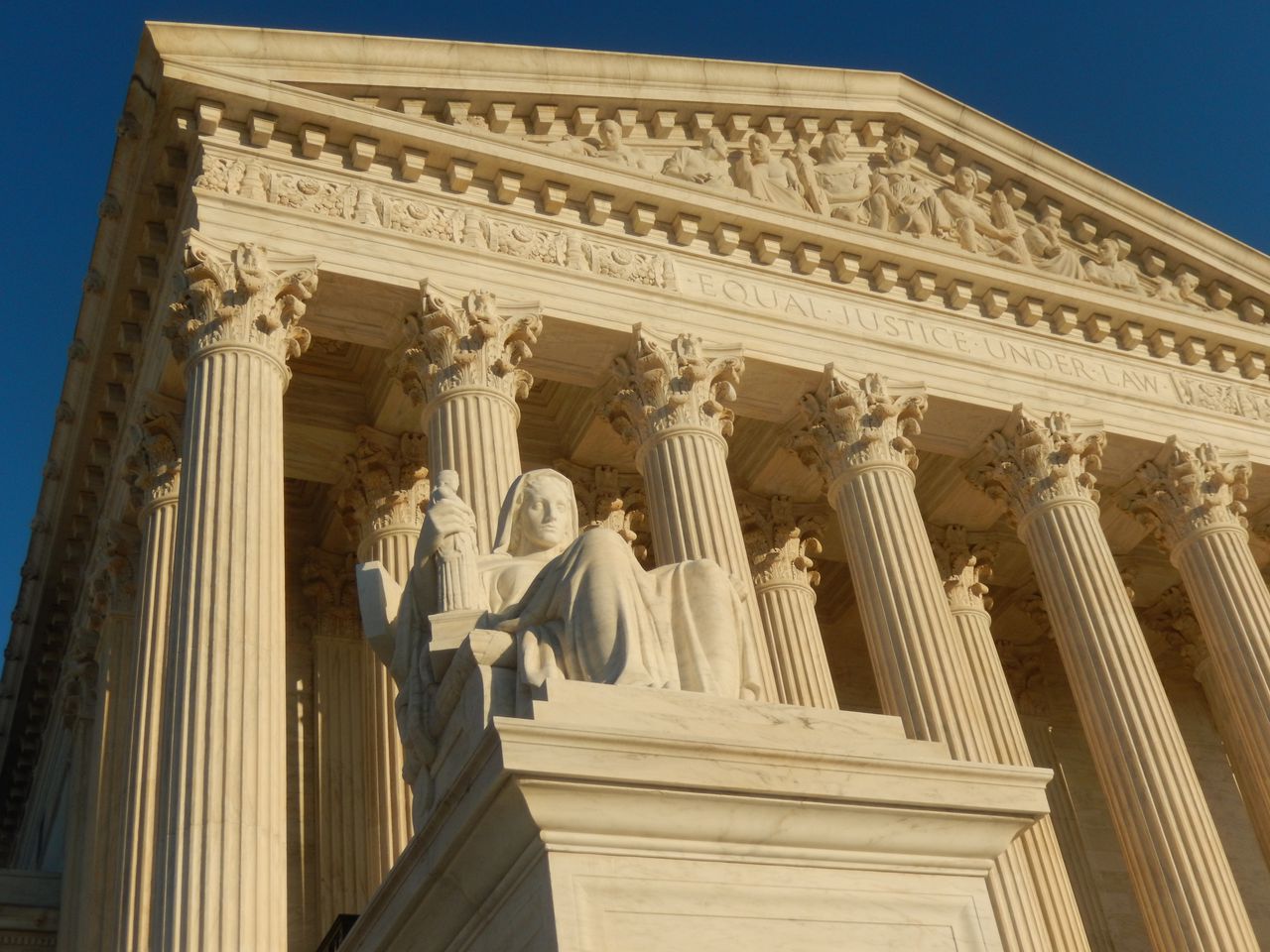SCOTUS could leave Alabama with two Black districts. Or zero.
This is a column.
Twenty-five years ago, I was covering a Bessemer City Council meeting when a young Birmingham lawyer asked to introduce himself to the room. Artur Davis told the folks there that he was running for Congress in Alabama’s 7th District and that he’d appreciate their votes.
After the meeting, I introduced myself to Davis. I grew up in Thomasville, I told him.
“Thomasville, Georgia?” he asked.
“Thomasville, Alabama,” I answered.
He asked me what part of the state that was.
It’s in the 7th Congressional District, I said.
Davis was embarrassed and every time I met him after that he would seem to overcompensate. I’ve told that story many times, probably to Davis’ chagrin.
But Tuesday I wanted to shout it — at the nine justices sitting on the bench in Washington.
Because it illustrates a vulnerability the court’s conservative majority could soon use to weaken Section 2 of the Voting Rights Act. The question is what exactly does it mean to be “reasonably compact”?
And that answer could determine whether Alabama gets two majority Black congressional districts.
Or maybe none at all.
PREVIOUS: This is how the Voting Rights Act ends
The 7th District is an imperfect solution to a persistent problem — racism. It ensures Black people have representation by stretching and twisting district lines until it captures enough Black voters to guarantee a Black lawmaker will prevail.
But it’s big and messy, and it favors urban candidates over rural ones. It stretches so far and wide, grabbing pieces of three of the state’s five largest cities, that a candidate from one end can win without knowing much about the other.
That such a thing should be necessary in the first place is sad, but before the courts ordered the state to draw such a district, Alabama hadn’t had a Black congressman since Reconstruction, and we still haven’t had one anywhere else in the state.
The 7th District is a kind of political coping mechanism — compensating for racism rather than solving it.
In recent years, Republican legislatures have discovered that majority-minority districts can be useful to them, too. By packing as many Black voters into as few districts as possible, they can check the box for guaranteed minority representation, while minimizing the overall influence of Black Democratic voters.
The plaintiffs in Merrill v. Milligan say that is what Alabama lawmakers did. In Alabama, Black voters make up 27 percent of the population but have only 14 percent of the representation in Congress.
The state should draw a second majority-minority district — or at least another district with enough Black voters that it would be party competitive, the plaintiffs say.
At the center of this case is a precedent from 1986 called Thornburg vs. Gingles.
Gingles laid out three preconditions for a majority-minority district.
The first hurdle — and the one that matters here — is that the plaintiffs must prove that a minority population is “sufficiently large and geographically compact” enough for a new district.
And it was at this target that the conservative justices on the court directed most of their questions.
“So then the question is, why is this district not reasonably compact?” Justice Brett Kavanaugh said. “And I will be candid, for both sides, I don’t really know how to measure reasonably compact.”
At times, Alabama Solicitor General Edmund LaCour meandered in his arguments, seeming to ask the court to gut the Gingles case much as the Dobbs decision struck through Roe v. Wade.
Whenever he did, he tried the patience of both conservative and liberal justices, and the conservatives repeatedly nudged him back to the issue of compactness.
Justice Samuel Alito called Alabama’s arguments “far-reaching.” Like Kavanaugh, he pushed the discussion back to what compact means, and he entertained an even narrower definition.
“It has to be reasonably configured,” Alito said, all but making LaCour’s argument for him. “And reasonably configured means something more than just compact. It means a district that is the type of district that would be drawn by an unbiased mapmaker.”
It’s unlikely that the court’s conservative majority will kill Section 2 of the Voting Rights Act but it might wound it too badly for it to be of much use. By making that hurdle in Gingles more difficult to clear, future plaintiffs would have a difficult time bringing more cases like this one.
The state’s attorney argued that there’s no way to draw a second geographically compact minority-majority district, and several of the justices seemed friendly to his argument.
But if this is the direction the court takes, it’s unclear where it stops.
Because I’ve seen the maps the plaintiffs have proposed.
If a proposed second district doesn’t meet the criteria of “compact,” the current 7th District certainly doesn’t, either.
To the contrary, the 7th District as it is now might be less compact than any in the plaintiffs’ proposed maps, and it’s only a matter of time before it’s a target, too.
And you don’t have to have grown up there to see it.
Kyle Whitmire is the state political columnist for the Alabama Media Group, 2020 winner of the Walker Stone Award, winner of the 2021 SPJ award for opinion writing, and 2021 winner of the Molly Ivins prize for political commentary.
You can follow his work on his Facebook page, The War on Dumb. And on Twitter. And on Instagram.
MORE COLUMNS BY KYLE WHITMIRE
Alabama GOP chairman made the photo ID he used to vote
Alabama GOP chair refused to show license to vote. That became a problem for poll workers.
Alabama GOP chair’s family believed voter ID was mark of the beast, brother said in deposition
